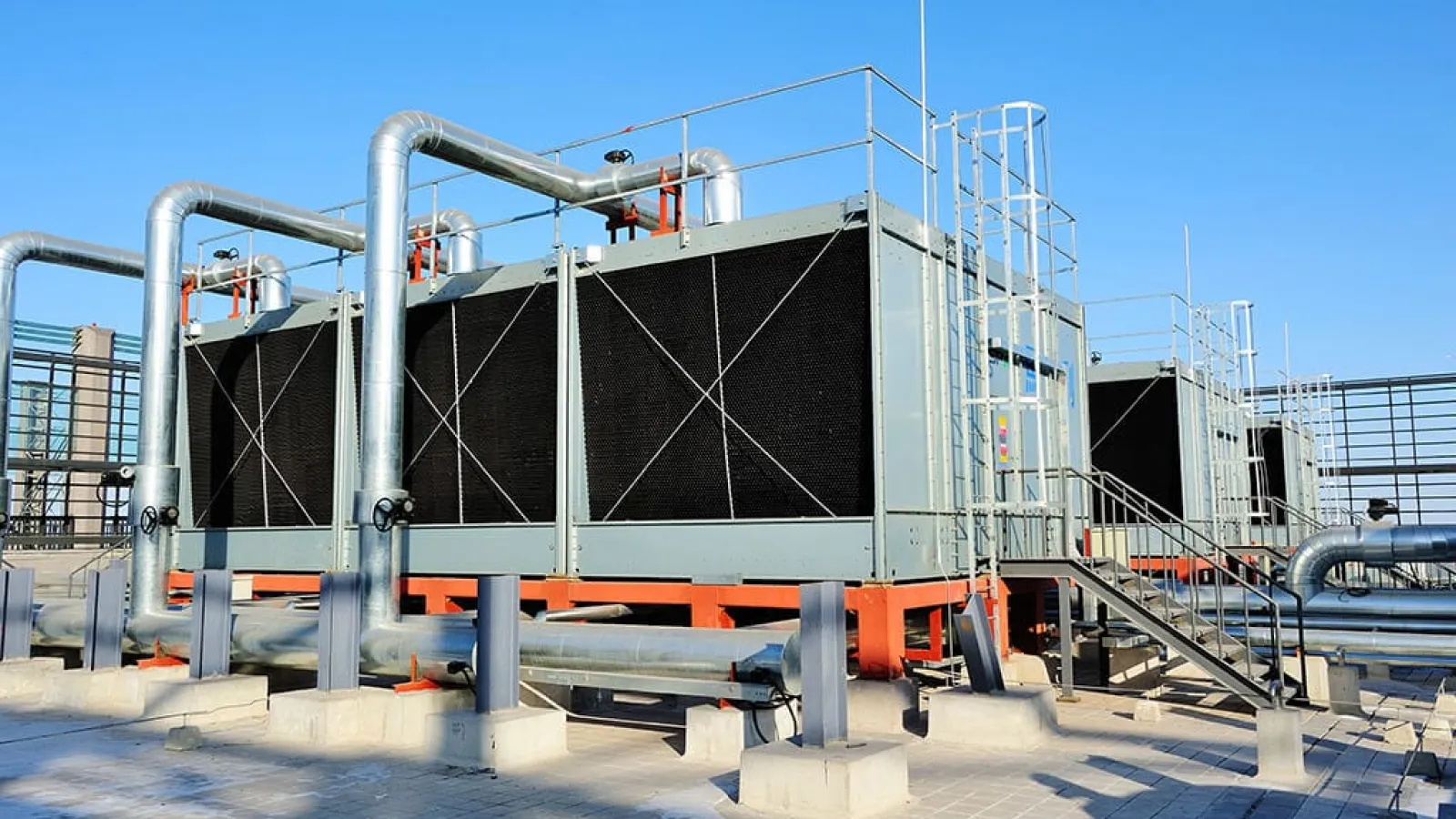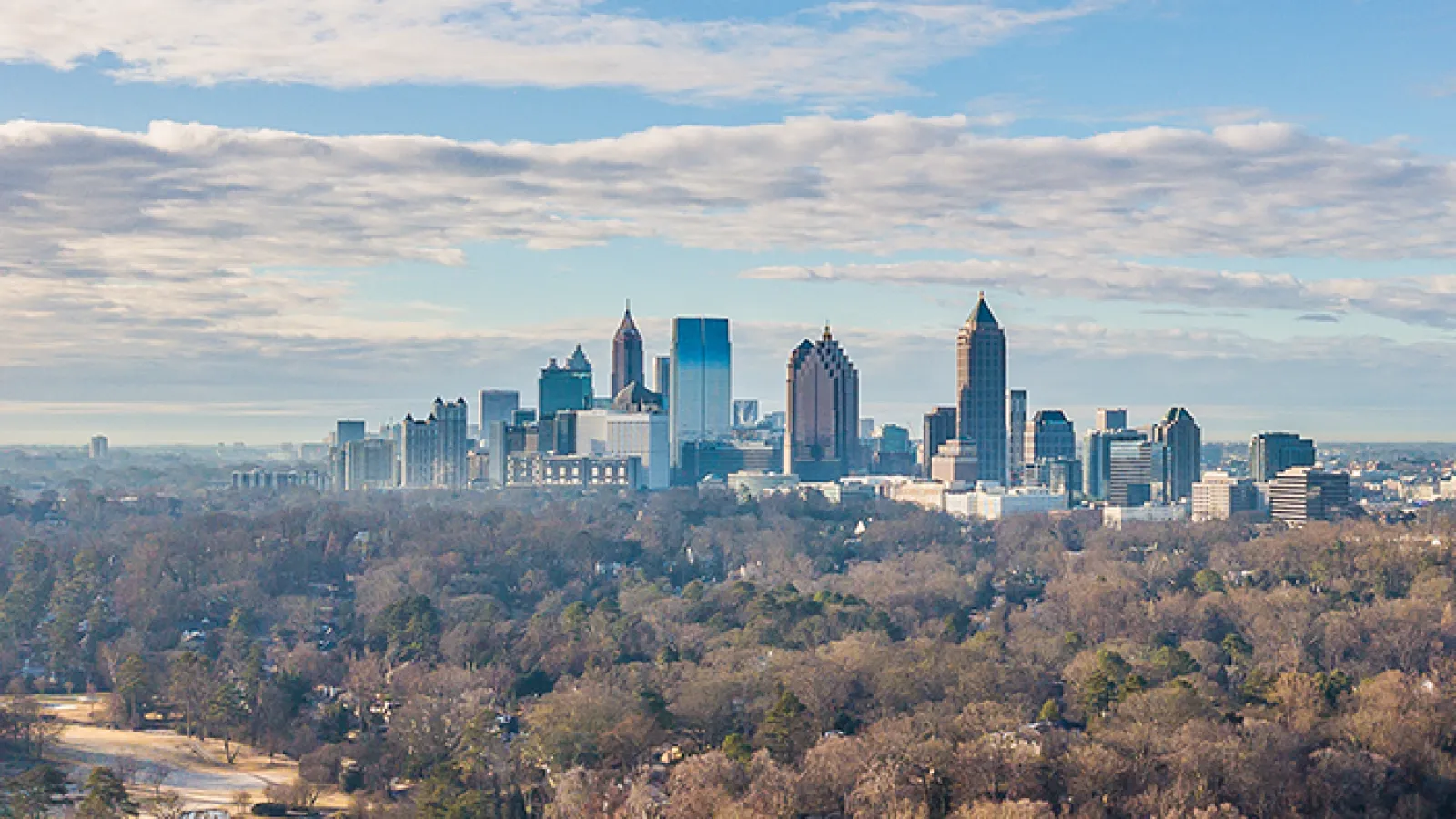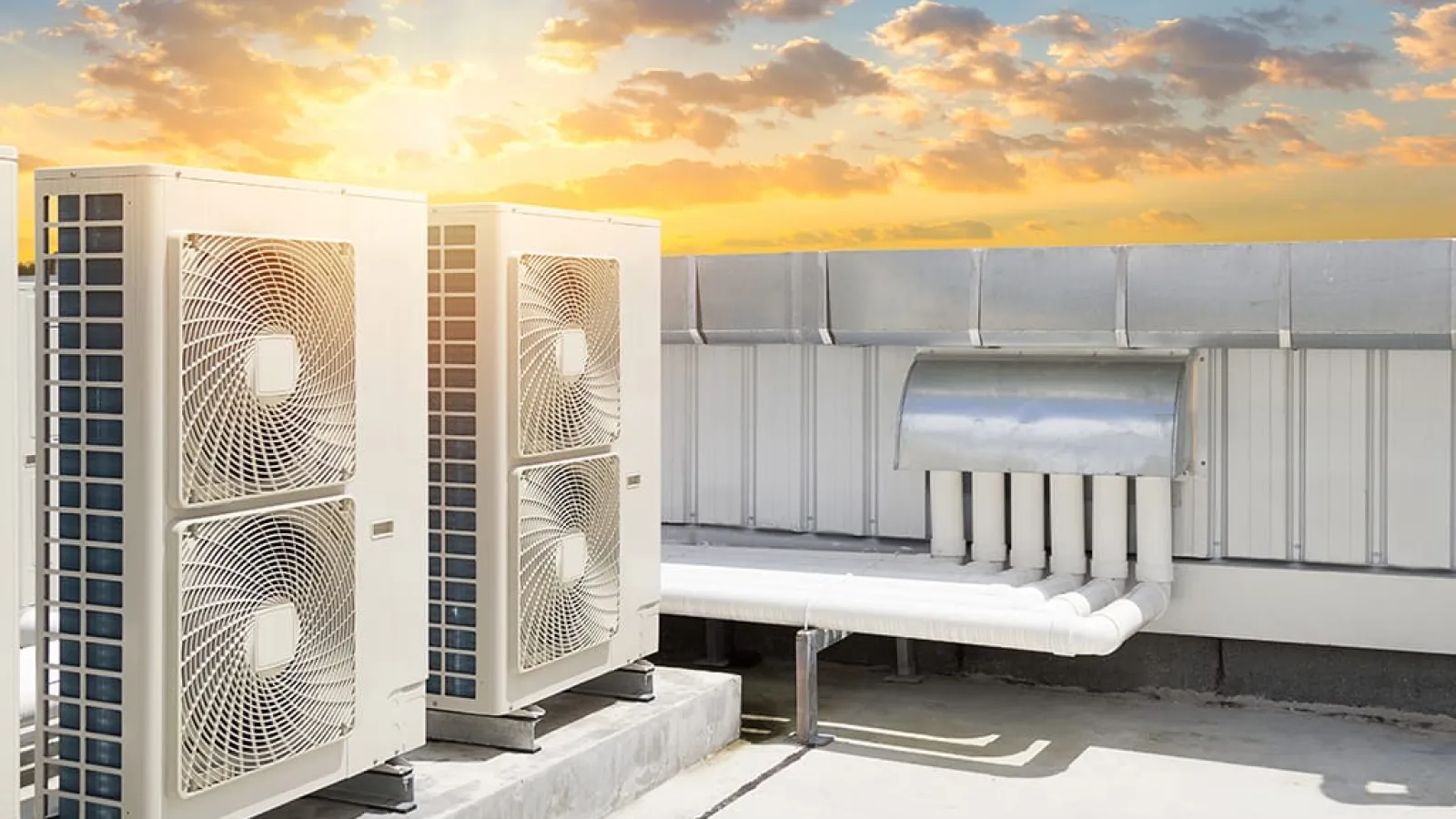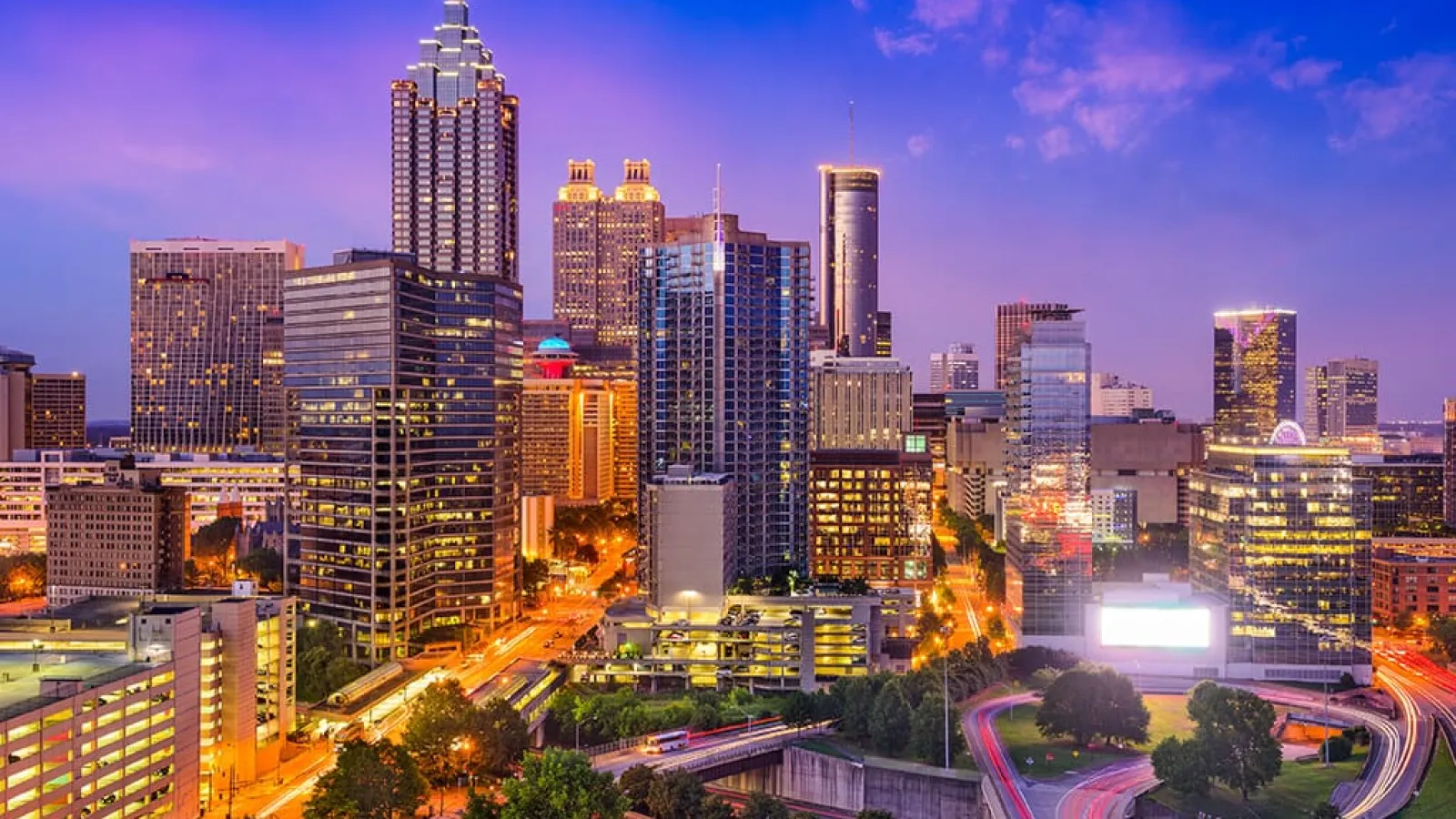How do cooling towers work? These systems are used in many Atlanta, GA, commercial facilities for effective air conditioning. Commercial HVAC systems with cooling towers are more energy efficient than other units, but how do they work? With the most functional system required for your facility's cooling needs, such cooling systems provide an answer to the problem.
What Are Cooling Towers?
A cooling tower gets rid of unwanted heat from chillers. Specifically, how do cooling towers work - as a heat removal device that utilizes water as a heat transfer medium. Heat is removed from the water supply through evaporation.
To do this, it pumps water to the top of the tower and moves down flow plates to the basin. Air goes through the plates and over the water, which releases heat via evaporation as it cycles through the cooling tower. Latent heat from vaporization is released when warm water and cool air mixes.
Where Are Cooling Towers Used?
Cooling towers are an integral part of refrigeration systems in facilities that require process cooling. They are often seen in facilities serving industries such as:
- Chemical processing
- Steel mills
- Power plants
- Manufacturing
- Refineries
- Natural gas processing
- Food processing
How do cooling towers work isn't restricted to process cooling - they are also used for comfort control in exceptionally large commercial buildings. You may find cooling towers as part of a comfort system in:
- Schools
- Hotels
- Hospitals
- Airports
- Office buildings
How Do Cooling Towers Work in Commercial HVAC?
The aim of HVAC systems in commercial buildings is to heat and cool an incredibly large area. Because of this, the size of units must proportionally increase to the space they want to supply conditioned air. Cooling towers fit in here. They are bigger, sturdier, and take on more work than smaller systems. When used in a commercial HVAC, cooling towers allow for high-quality air with far less energy.
Cooling towers are designed and sized based on the cooling load of the space they are installed to serve. Building size, relative humidity levels, and other factors are considered when determining cooling tower size.
Condenser coils are the main focus of these tower systems. Coils generate a lot of heat as the system cycles. When they overheat, problems start to arise with the air conditioning. Cooling towers move cold water through the warm coils, then into a heat exchanger.
A heat exchanger pulls the heat from the water and pushes it back to the coils, which reduces the amount of work for the system as a whole.
Commercial HVAC units need to cool such large areas, which provides a smart solution to sudden breakdowns. The work an HVAC unit does to cool commercial spaces far exceeds that of a residential unit, so these towers provide a needed crutch for the unit. Cooling towers take away some of the pressure for the HVAC system, which lessens the chance of a breakdown.
Proper Maintenance for Cooling Towers
Because cooling towers are their own beast in terms of cooling technology, they require specific maintenance. Smart maintenance programs improve upon how cooling towers work to save facilities time and money.
Here are some tips for their maintenance:
- Thorough cleaning
- Removal of scale deposits
- Water treatment
- Component inspection
Clean thoroughly
Water pools for long periods of time in a cooling tower, which presents the potential for bacterial growth. Properly disinfect and maintain the interior of the cooling tower at least two times a year to prevent harmful bacteria from forming. Chemical cleaning solutions are circulated through the system and flushed out. Pressure washing and vacuums are also used to remove contaminants from the cooling tower.
Due to the large volumes of water involved in how cooling towers work, these components are potential breeding grounds for the development of Legionella bacteria. The heat contained in cooling tower water also plays a role. Due to this risk, proper disinfection and maintenance is critical to prevent outbreaks of Legionnaires' disease caused by a contaminated cooling tower.
Clean scale deposits
Minerals present in evaporated water stick to cooling towers, which decreases the efficiency of the system. Remove limescale buildup two to three times a year for a functional cooling tower.
Treat the water
Water quality plays a large part in the functionality of cooling towers. System breakdowns occur more often when your water isn't top quality. Water treatments ensure your water is the highest quality and does not damage your cooling tower. Water treatment is typically performed on a monthly basis unless the equipment manufacturer specifies otherwise.
Component Inspection
A cooling tower's mechanical components require consistent inspection and occasional adjustments. These components include motors, fans, and belts. Electrical components also need regular inspection and monitoring for capacitor and wiring replacement needs.
Cooling Tower Services from Estes Commercial
Cooling towers provide commercial HVAC systems with a much-needed pressure reliever. Because they are so helpful, consider them for your commercial space. Heat and Georgia go hand-in-hand, but you don't have to suffer through high temperatures when you have the help of an effective cooling system.
How do cooling towers work for facilities across the Atlanta area? With the help of Estes Commercial, of course! For more information about these benefits, give Estes' Commercial team a call. We provide free service estimates and perform commercial HVAC maintenance, repairs and installations.
Estes Commercial also provides building automation system solutions as well as thermostats/controls and ventilation help. You'll find us helping commercial customers throughout Atlanta, including Dunwoody, Decatur, Roswell, Peachtree City and Kennesaw.
We also serve customers in Johns Creek, Sandy Springs, Virginia Highland, Druid Hills, Midtown, Buckhead, Marietta and Fayetteville.




